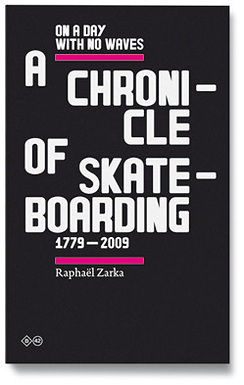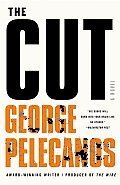Giving Away Chapbooks, Skating + Reading DC
Yes: still blogging at Kenyon Review—another month—and recent stuff's here to go check out. Also: recent work just went live at Scythe, which is a place I didn't know enough about before but hot damn do they do great stuff.
 Along that line: I was finalisted yet again in a chapbook contest. This is, of course, cool, and I'm excited, and sure would've loved to have been the picked winner. Still: great. Burnside's amazing. I did get to thinking, though, that it seems silly that I've got all these poems and books and etc., and they're all sitting on my own hard drive, doing no one any good. So: you can now download a pdf of a chapbook of mine right here. It's called Scarcity Models vs the Heart's Brick Factory. I'm literally just putting it here because it's not in any contests right now and I'm tired of having stuff almost but not quite out for whatever. To the right you'll see the first image result if you enter the chap's title on Google. Download it if you'd like. Pass it around. Enjoy. Now, some reviews.
Along that line: I was finalisted yet again in a chapbook contest. This is, of course, cool, and I'm excited, and sure would've loved to have been the picked winner. Still: great. Burnside's amazing. I did get to thinking, though, that it seems silly that I've got all these poems and books and etc., and they're all sitting on my own hard drive, doing no one any good. So: you can now download a pdf of a chapbook of mine right here. It's called Scarcity Models vs the Heart's Brick Factory. I'm literally just putting it here because it's not in any contests right now and I'm tired of having stuff almost but not quite out for whatever. To the right you'll see the first image result if you enter the chap's title on Google. Download it if you'd like. Pass it around. Enjoy. Now, some reviews.
 On a Day With No Waves by Raphael Zarka
On a Day With No Waves by Raphael Zarka
Because I've got a good + strident friend who's deeply and life-long into skateboarding, I've ended up with skateboarding in the margins of my life for a long while now. I'm drawn by/to skateboarding in the same way I was by/to the city bikers and messengers on fixies from maybe 8 years ago: there's a relationship between skater/biker and city that I admire and wish I had. Nobody driving can possibly have a relationship to movement or streets or the basic geography of urbanity that a skateboarder can. Which is of course obvious, but you still need to read Raphael Zarka's incredible On a Day With No Waves. Why?
First, most boringly and obviously: the subtitle, A Chronicle of Skateboarding 1779-2009 is not at all a typo or intending to be clever or cute: Zarka brings a smattering of historical examples into play to allow the development of the skateboard—starting for real in the 50′s in the States—to feel grounded historically, but also to try to tease out the Zarka's broader thesis. Which is, ultimately, abstract and hugely cool: that skateboarding is what it is not just because it's pleasurable or whatever but because the machine facilitates and allows that unique relationship between human and city that's unavailable elsewhere (unless you're a die-hard city biker and believe that, which I think is arguable). This all sounds hoity-toity and French and metaphysical, and it sort of is, but I'm telling you, the book is riveting: Zarka's focus stays tightly on skateboarding as an experience which allows flex and flow within it—a static thing made of motion. Skateboarding, in Zarka's able work, is a unique opportunity for all of us to play with and in and against the gray heavy-dutiness of a city. It's phenomenally cool reading: I can think of no recent book which'll so light so many disparate parts of your brain.
I interviewed Pelecanos a bit back for the Kenyon Review blog, which I feel makes this pretty obvious and foregone: hell yes I like his books (and his TV writing). His new one, The Cut, qualifies for consideration as his best yet: Spero Lucas, the book's hero, is fascinating and great in more complex and whole ways than even the heroes in Long Way Home, his last one. You want more than a great, conflicted, out-for-redemption character? Fine: the plot here's tight enough to induce sensations of g-force just by reading (my spouse and I each read it on a beach in a day, hardly getting up from our chairs). There's this whole other thing, too, that makes Pelecanos so great: dude's local. He writes Washington, DC. I asked him about it in the interview, and you can go read his answer, but you sort of can't grasp how cool it is to read mystery/thriller-type stuff set in a real contemporary place until you come across it. I'll here note that Hammett and the old legendary greats of pulp stuff did the same: Pelecanos is upholding a great tradition (along with, of course, Price and Lehane and the handful of other absolute genuises).












